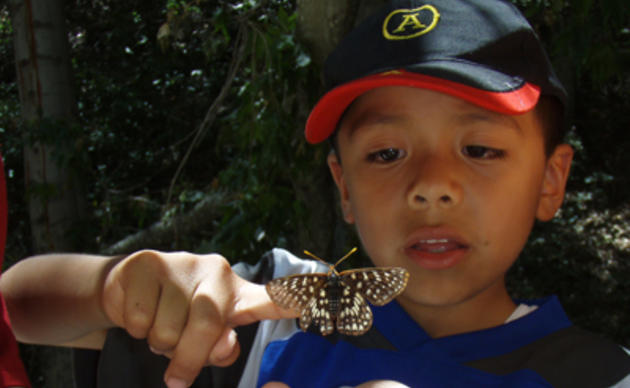What to do if you find an injured or orphaned bird
When you come upon an injured bird or a chick on the ground that appears to be orphaned, your first instinct is to help. But it’s always best to stop and think. In many cases, the best action is to do nothing.
However, if you encounter a bird that is obviously injured, it will be in danger if it remains where it is, or appears too young to move itself to safety, here are some recommendations:
- If you find an adult bird (any bird smaller than a crow. House Finches, California Towhee, and Mourning Doves for example) with obvious injuries like a broken wing, unable to stand, or wounded, secure the bird in a box or paper bag with airholes and some crumpled paper towels in the bottom. Place the bird somewhere quiet and call a local wildlife rehabilitator. (hyper link to the list)
- If a small adult bird has just hit a window, it may simply need time to regain its senses. Place the bird in a paper bag or box with airholes and lined with paper towels. Do not offer food or water. Keep the bird in a quiet place for one hour. Open the box or bag up outside and if the bird does not fly away, call a wildlife rehabber. If it has obvious injuries (such as bleeding or a broken wing), you should contact a wildlife rehabilitation agency.
- If you have found a chick on the ground, it is almost always best to leave it where it is. When many young birds first fledge and leave the nest, they may still have a little down with short tail and wing feathers. Fledglings often also have weak flight muscles and may be fed for a few days by their parents outside of the nest. They can perch, run, and hop. This is a vulnerable time for young birds, as they are easy prey for cats, dogs, and other predators. If you find a fledging in your yard, keep pets away until the bird has left. Always keep cats inside. It is important to keep fledglings in the wild and allow the parents to continue feeding them.
- If the bird has fallen out of the nest prematurely (they will appear helpless, have downy feathers, and be unable to move around well) or if a tree was cut down and a nest of young is found, place the birds in a box or paper bag with air holes and some crumpled paper towels in the bottom in the form of a nest. Place the bag somewhere warm and quiet then call a rehabber immediately. Do not ever attempt to feed or give water to young birds.
If you find larger birds (examples include American Crow, Common Raven, Cooper’s Hawk, Red Tailed Hawk, Great-horned Owl) proceed with caution as birds with large talons or birds that bite can cause injury. It is best to consult with a wildlife rehabber before containing these birds.
If you are ever unable to contact a wildlife rehabber, your local animal services center should be contacted.
In the Northeast Los Angeles area that is North Central Animal Services at:
How you can help, right now
Visiting Our Center
Audubon Center at Debs Park is located at 4700 Griffin Ave, Los Angeles, CA 90031
Center Hours:
- Thursdays to Sundays : 8:00 a.m. to 4:00 p.m.
Trail Hours:
- Sunrise to Sunset
Make a gift
You can help us continue to deliver this outstanding programming to the Los Angeles area by making a generous gift today. Thank you!





